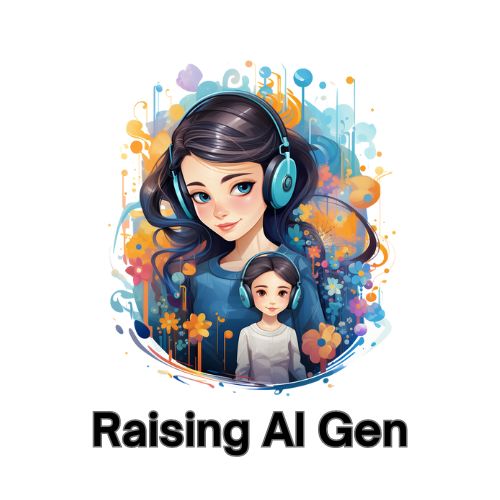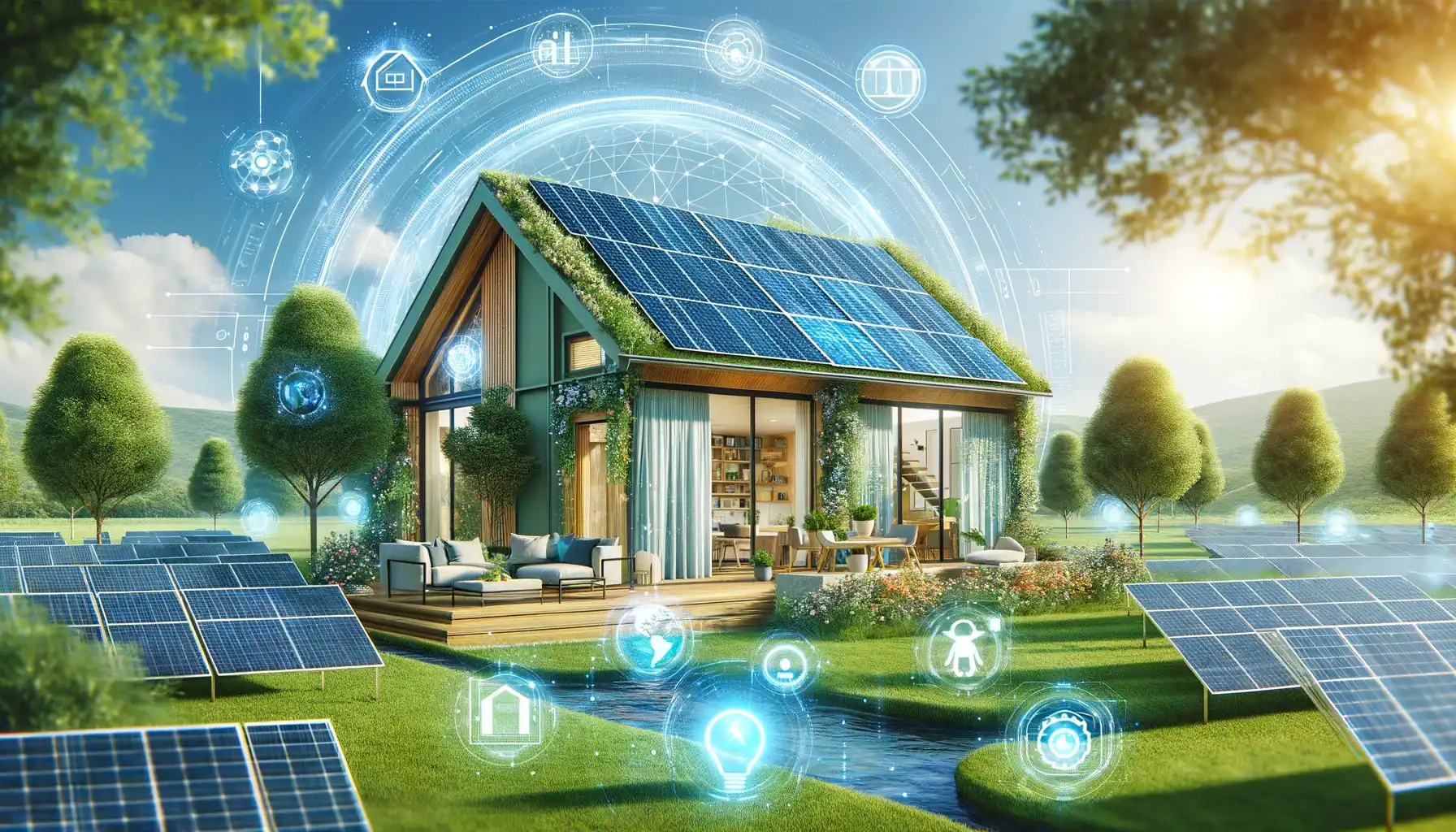The burgeoning field of artificial intelligence (AI) is reshaping our world, touching every facet of our lives with the promise of smarter and more sustainable futures. As eco-consciousness grows, the convergence of AI and sustainable living is emerging as an innovative force capable of fostering significant environmental benefits and transforming our approach to eco-friendly family living.
Leaders across industries have recognized the potential to harness AI tools for a vast array of applications. From generating incisive sales communications to devising engineering breakthroughs, machine learning (ML), especially natural language processing (NLP), stands as a testament to how AI for Eco-Friendly Family Living can revolutionize productivity and sustainability.
Yet, while the allure of AI-powered efficiency beckons, the challenge remains to balance intellectual property safety with environmental and societal responsibilities. Smart technology for sustainable living must therefore be developed thoughtfully, safeguarding against the inadvertent exposure of sensitive data and aligning with green innovation.
Key Takeaways
- AI integration is key to optimizing home efficiency and sustainability.
- AI tools must be designed to protect intellectual property while promoting eco-friendliness.
- In-house AI solutions must be weighed against environmental and financial costs.
- Strategies focused on smart technology for sustainable living are imperative for future growth.
- Commitment to sustainability in AI deployment harmonizes business growth with ecological responsibility.
- Home management benefits greatly from AI, pushing the envelope towards greener living spaces.

Integrating AI into Sustainable Home Management
The forefront of home management is seeing an exhilarating evolution as AI-powered sustainability innovations promise to redefine eco-friendliness within our living spaces. The advent of sophisticated AI technology is not just an upgrade to the operational aspects of home management; it’s a transformative drive towards eco-conscious living.
Revolutionary developments slated for rollout, like the anticipated AI Superbrain Assistant by 2024, stand to exponentially bolster the realms of creativity, efficiency, and productivity in industries pivotal to our homes—interior design, architecture, and construction. The AI-powered approach is set to empower these arenas with data-driven insights that foster intelligent design choices, offering significant environmental benefits of AI.
By tapping into vast pools of data, eco-friendly AI solutions can lead homeowners toward making informed, sustainable decisions. This technologically enlightened route enables a household that is not only smarter but operates with an innate sensitivity towards the environment.
Understanding the intricate relationship between a carbon footprint and living standards, AI enters as a pivotal factor in striking that coveted balance. It delivers a dual advantage—optimizing home operations while promoting sustainability, thereby achieving a synergy of form, function, and environmental consciousness that traditional approaches have struggled to maintain. The upshot is a home environment that thrives on efficient energy use without compromising on quality of life or planetary health.
- Integrating AI into smart appliances for optimized energy management.
- Leveraging AI for advanced climate control systems, balancing comfort with energy savings.
- Utilizing intelligent AI algorithms to minimize wastage in home utilities.
- Designing AI-centric home features that foster sustainable living habits.
Incorporating these elements of eco-friendly AI is not only an investment in the quality of one’s daily life but also a commitment to the longevity and health of our environment, creating a legacy that extends beyond the confines of one’s own home.
AI for Eco-Friendly Family Living: Revolutionizing Daily Routines
As we delve deeper into the 21st century, the fusion of sustainable living with AI is not just an aspiration but a reality unfolding within the privacy of our homes. AI has transcended its industrial origins, migrating into our intimate spaces to become a cornerstone of efficient, eco-friendly family living. The stage is set for AI to play a starring role in our daily life, transforming mundane routines into models of sustainability.

The paradigm shift in home energy management is palpable with the emergence of smart technology for sustainable living. An integrated system of AI-managed smart devices can dramatically alter energy usage patterns, propelling households toward a greener future while minimizing their carbon footprint.
Smart Technology for Efficient Energy Use
Energy conservation is vital in the quest for sustainability, and AI has become the maestro orchestrating this endeavor. By automating and refining energy consumption in our dwellings, smart technology ensures that every watt is accounted for and every resource maximized. The intelligence behind these systems lies in their anticipatory nature, pre-empting our needs and adjusting the household’s energy profile for optimum efficiency.
- AI-regulated thermostats that adjust according to usage patterns
- Lights that modulate their output based on the time of day
- Smart appliances that run at the most energy-efficient times
Eco-Conscious Living With AI-Powered Devices
The journey to an eco-conscious lifestyle is a conscious choice, one that is increasingly supported by AI. These intelligent devices not only comply with our eco-friendly ambitions but also promote habits that contribute to a healthier planet. Imagine a refrigerator that suggests recipes based on minimizing food waste or a washing machine that calculates the optimal load and detergent to conserve water.
| Device | Eco-Conscious Feature | User Benefit |
|---|---|---|
| AI Energy Monitor | Real-time tracking and suggestions for reduction | Lower utility bills and reduced environmental impact |
| Smart Water Heater | Learning schedule and anticipating hot water needs | Energy conservation and on-demand availability |
| Robotic Vacuum Cleaner | Efficient cleaning paths and energy-saving modes | Time saved and extended device life |
The benefits of embracing eco-conscious living with AI extend far beyond mere convenience. They signify an important step towards a more sustainable world and demonstrate the tangible impact that cutting-edge technology can have on our daily lives and the environment. As we advance, it’s this harmony between technology and sustainability that will not only define our homes but our legacy for future generations.
Eco-Friendly AI Solutions: A Path to Environmental Benefits
The integration of eco-friendly AI solutions into our daily lives heralds a new era for environmental stewardship. Industries such as interior design and construction are on the cusp of a revolution, propelled by companies like Madus Interiors. These pioneers are embracing AI to ensure that as our spaces become smarter, they also become greener.
AI’s power lies in its unrivaled data analysis abilities, allowing us to optimize resource usage and substantially reduce waste. Such technologies offer a perspective on sustainability that blends efficiency and eco-consciousness, a transformative approach for professional and private realms alike.

Personalized AI assistive technologies are particularly promising, offering tailored assistance that comprehends the unique contours of professional demands in design, architecture, and construction. This customization is the backbone of constructing spaces that are not only inventive but intrinsically sustainable.
- The use of AI in automating energy-efficient practices within homes and buildings.
- Development of AI algorithms for smarter waste management systems.
- Integrating AI in the selection of sustainable materials and construction methods.
- Deployment of AI-powered tools for monitoring environmental impact.
As we march forward, the indelible footprint of AI for green homes becomes more apparent, promising profound environmental benefits. These advances, however, are not just about forging ahead with new technologies but about redefining the ethos of environmental care in the technological age.
| AI Feature | Eco-Friendly Impact |
|---|---|
| Advanced Energy Analytics | Identification and reduction of energy wastage |
| Smart Climate Control | Dynamic adjustments, reducing unnecessary heating and cooling |
| Automated Recycling Sorters | Increased recycling rates and reduced contamination |
The fusion of AI with eco-friendly practices is not just a novelty but a necessity as we navigate the reality of climate change. Eco-friendly AI solutions represent a bridge to a future where technology and nature exist in harmony, promoting an ethos of innovation that serves us today and protects our tomorrow.
Advancing Sustainable Practices With AI Assistance
The brilliance of artificial intelligence (AI) is becoming increasingly evident as it propels sustainable practices with AI assistance into the stratosphere. By interlacing sophisticated algorithms with the intimate mechanics of home management and the larger frameworks of construction, AI is not just a tool but a transformational force for AI for green homes. This disruptive technology is empowering businesses and homeowners alike to envision and enact a future where growth and sustainability are not mutually exclusive but mutually enhancing.
AI’s prowess in navigating complex datasets unlocks a myriad of opportunities to streamline processes, reduce waste, and champion energy efficiency. Industry leaders are increasingly tapping into this potential to morph operational constraints into innovative eco-solutions. The essence of this transformation revolves around an inherent ability to upscale with minimal ecological impact, realigning the synthesis between robust economic pursuits and vital environmental integrity.
As AI’s influence cascades beyond traditional industry barriers, it is reshaping strategic paradigms, offering sustainable practices with AI assistance that are not just good for business but essential for planetary stewardship. In our homes, harnessing AI for green initiatives materializes as smart energy systems, intuitive conservation measures, and reduction in carbon indicators—laying the groundwork for a legacy that marries technology with sustainability for today’s society and generations to come.
Frequently Asked Questions
| Question | Answer |
|---|---|
| Can AI be environmentally friendly? | Yes, AI can be environmentally friendly by optimizing energy usage, aiding in resource management, and supporting sustainable practices in various sectors like home design, fashion, and transportation. |
| How to use AI for environment? | AI can be used for the environment by employing smart systems for energy efficiency, waste reduction, and resource management, as well as using AI-driven tools for sustainable decision-making in daily life. |
| How AI can help in sustainable communities? | AI helps in creating sustainable communities by providing solutions for efficient resource utilization, supporting eco-friendly infrastructure development, and enhancing community engagement in sustainability initiatives. |
| How can we make our household more eco-friendly? | To make a household more eco-friendly, consider using AI tools for energy-efficient home design, adopting smart appliances, minimizing waste, and using AI for eco-conscious lifestyle choices like sustainable fashion and home gardening. |
Further Reading
| Title | Link |
|---|---|
| Tailoring Education to Every Child with AI | Read More |
| AI in Mental Health: Uses and Applications | Read More |
| Is There an AI for Mental Health? | Read More |
| AI in Education: The Future of Learning | Read More |
| Personalized Learning with AI | Read More |
| AI Tools for Teachers | Read More |
| AI for Language Learning | Read More |
| AI for Autism: Support and Solutions | Read More |
| AI Tools for Autism: Innovations and Insights | Read More |
| AI for Educators: Transforming Education | Read More |





